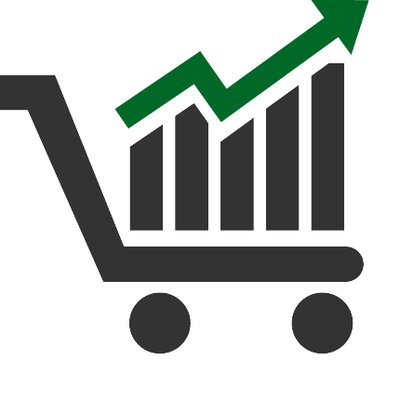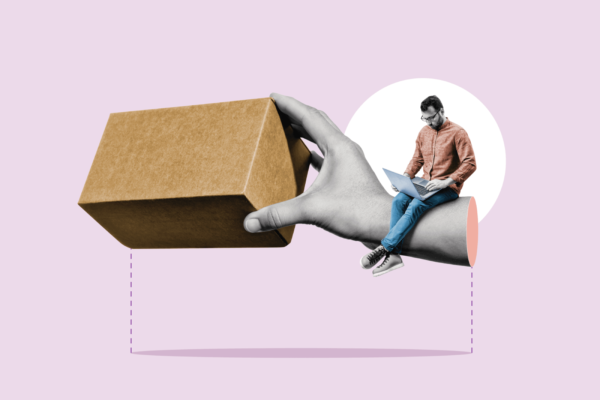7 Reports on Global e-Commerce That You Should Know


What is worth knowing about global e-commerce? Check out these 7 reports on this topic.
1) „Global B2C Ecommerce Report”
The year 2014 saw very intensive growth in B2C sales in e-commerce. Real growth rate amounted to 24%, with sales at $1.943 billion. The estimates for 2015 foresee slower B2C sales in ecommerce as the market matures, but double-digit growth is still expected (16%), with total sales of $2.251 billion.
2) How to survive the global marketplaces
A report prepared by Ecommerce Europe on the increasing clout of international players such as Amazon and Alibaba, whose market share is expected to grow by 40% by 2020.
3) Adapt and Adopt: Government’s Role in Internet Policy
The online economy is growing very fast worldwide, but the “Internet Tigers” are clearly leaving behind the countries that neglect investment, suggests a report by the Boston Consulting Group entitled Adapt and Adopt: Government’s Role in Internet Policy. What is special about the countries that top the e-Intensity Index? Their governments invest in internet infrastructure and they are successful in persuading consumers, companies and public administration to use the Web. The most digitally advanced economies, such as South Korea, Sweden or Japan have been pursuing consistent long-term policies aimed at supporting the growth of online economy. Their governments have been acting as change leaders. They realized how important the internet would be in the future, and they encouraged constant evolution in online activity.
Today, at the time of slow economic growth, countries need to look for new areas of growth, and the Internet can be a great ally here. During the next 5 years the online economy in the 20 most developed countries of the world is expected to grow at 8% per year, and as quickly as 18% per year in developing markets. There are no industries that could match the Web in this respect!
4) Turning Local
The Internet is a global network, but, due to linguistic, cultural and social differences it is becoming more and more local. As a result, the global network has become a patchwork of local networks that differ with respect to language, user preferences and governmental regulations.
Let’s compare the United Kingdom and the Netherlands. In the UK, web users just love online shopping – they buy not just consumer electronics, appliances and books, but also food and clothing. In the Netherlands the situation is quite different. Dutch people still prefer shopping in brick and mortar stores. Another example of the differences could be Facebook, which has conquered the United States and Western Europe, but it is still losing out to local competitors in Russia, China or Brazil. BCG experts are also pointing out that in the upcoming years we will be seeing more major shifts – for example English, which is the most popular language on the Web right now, will have to yield to Chinese.
The Turning Local report is based on analyses conducted in 13 countries, and it indicates the major changes we will be soon observing.
5) The Internet Economy in G-20
In 2016, there will be 3 billion Web users in the world – in other words, nearly half of the Earth’s population will use the Internet. The value of the online business in the world’s 20 biggest economies will exceed 4.3 billion dollars. This means that the Internet will be the world’s fifth biggest economy – smaller than the economies of the US, China, Japan and India, but bigger than Germany! At the same time, the Web is changing rapidly – the increase in the popularity of tablets and smartphones means that we use it more and more often, sending more and more data. What will the online economy of G-20 countries look like? How can companies prepare for upcoming changes? This is what the Boston Consulting Group report The Internet Economy in G-20 is all about.
6) Digital’s Disruption of Consumer Goods and Retail
Nobody can remain indifferent to the Internet, as thousands of companies could testify when they found new ways to grow or, conversely, saw the viability of their business model put in doubt. With new contact opportunities, development of new technologies, social buying and totally new forms of marketing, the value of the global e-commerce market will exceed 1.5 billion dollars by the end of 2015. These changes create huge value for such players as Amazon or the Chinese Taobao, but many companies must adjust to functioning in the online world. Digital’s Disruption of Consumer Goods and Retail is the first in a series of articles that analyze the impact of the Internet on different companies and industries.
7) Secrets of Online Marketplaces
The retail market is subject to regular revolutions. In the 19th century, department stores were such a revolutionary change. In the 20th century, shopping was totally revolutionized by catalog and mail order sales, and then the rise of hypermarkets. The first revolution of the 21st century is the rising popularity of online stores, and this revolution is astonishingly fast. Companies such as Amazon, Rakuten or Taobao have won large parts of their markets very rapidly, and they still have ambitious plans for growth. In Secrets of Onine Marketplace, the experts of The Boston Consulting Group show how companies react to challenges that the online revolution creates.
Promuj biznes na łamach Komerso.pl!









